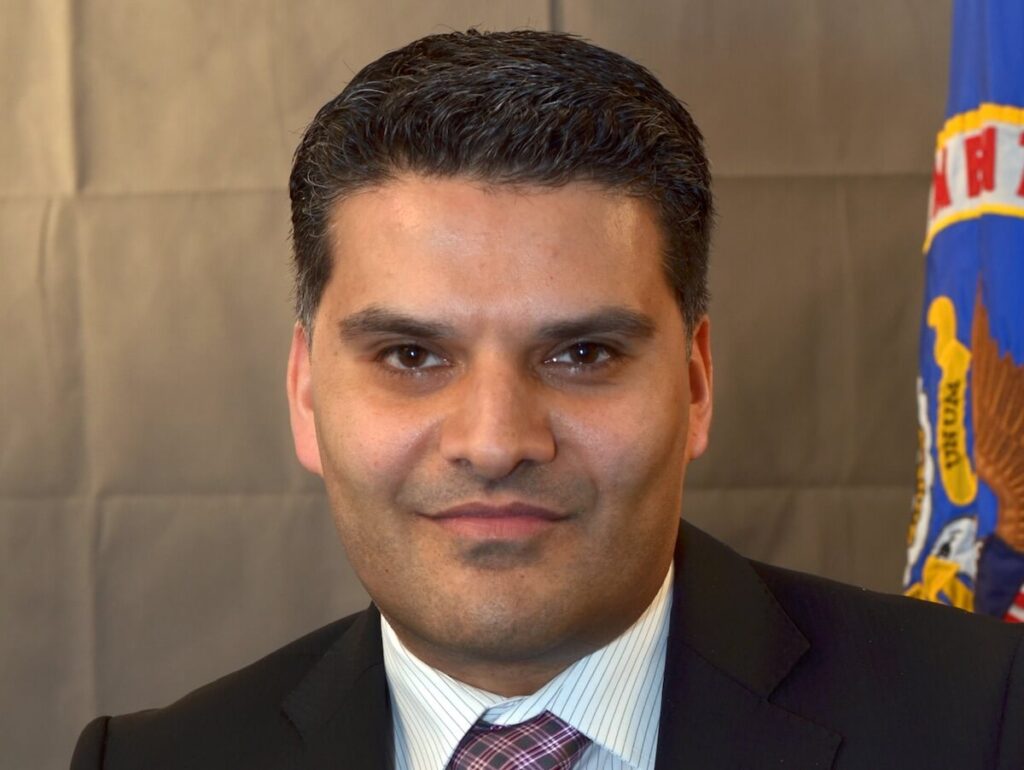
Though we are no doubt still in the throes of the COVID-19 pandemic — and must be vigilant in protecting ourselves and one another by following public health guidelines — there is a sense of change in the air and hope on the horizon as 2021 gets underway in earnest. This year, with the distribution of vaccines and other advances in the fight against COVID-19, I believe we will make great progress in recovering from the pandemic that has upended our lives and institutions over the past 11 months. UCLA will play a major part in that recovery.
We all know that returning to our regular rhythms will take time, but one of the things I would like to restart now is my practice of sending you quarterly updates to let you know about some of the most important developments at UCLA and how we are fulfilling our mission of research, education and service.
What role should UCLA — and all of us as individuals — play to ensure a bright future? Here are a few updates on the ways in which we are meeting the moment.
In this issue
- Contributing to the Pandemic Response
- Confronting Our Financial Challenges
- Establishing a New Civil Rights Office
Contributing to the Pandemic Response

UCLA’s public service mission asks that we continually assess how our institution can contribute solutions to society’s greatest challenges. Faced with the threat of the COVID-19 pandemic, the UCLA community has stepped up in hugely important ways, launching hundreds of initiatives to learn more about the virus, mitigate its spread, provide testing and treatment, address health inequities and help us chart a path toward recovery.
At the moment, of course, one area of focus is on administering vaccines. Since mid-December UCLA has administered at least one dose of an FDA-approved vaccine to more than 33,000 regional health care workers, UCLA Health patients and members of other at-risk groups, and in January we committed to offering vaccines to every one of our students, staff and faculty members at no cost through our health system. We hope to administer these vaccines over the next several months, in line with the Los Angeles County Department of Public Health’s phased distribution schedule. A public research institution like ours also has a duty to provide the public with accurate and up-to-date information about complex subjects like vaccines, so we’ve centralized our knowledge and resources on UCLA Health’s vaccine information hub.
UCLA Health has also contributed to the pandemic response in other ways. Notably, we were one of the first academic health systems in the country to develop in-house COVID-19 testing, and our scientists pioneered fast and cheap testing technology capable of testing thousands of samples for coronavirus at the same time. Our health system has tested more than 147,000 people since the onset of the pandemic and is offering tests at 40 different locations, while the Arthur Ashe Student Health and Wellness Center has processed more than 150,000 tests for people living, learning and working on the UCLA campus.
There are numerous other examples of innovation and collaboration across campus, from UCLA bioengineers using 3D printers to create reusable, durable face shields for frontline workers to the UCLA Depression Grand Challenge partnering with Beyoncé’s BeyGOOD initiative and Jack Dorsey’s Start Small fund to offer resources, tips and tools for managing the mental health pressures we are all facing. UCLA is also part of a statewide initiative to train thousands of Californians in public health techniques and contact tracing strategies. And finally, recognizing the health disparities highlighted by the pandemic, our public health and urban planning experts developed a method to identify populations and neighborhoods in Los Angeles County that are most at risk of becoming infected, in part to help decision-makers prioritize vaccine distribution to include the most vulnerable populations early.
These are just a few of the many ways in which UCLA has contributed to this important global effort. Please visit the UCLA Newsroom to learn more about how Bruins are helping combat the pandemic.
Confronting Our Financial Challenges

Many of you know that UCLA has faced significant pandemic-related financial challenges since last March. While I am very pleased that we have committed to avoiding layoffs of career employees through at least June 30, 2021, between increased costs and lost revenue the pandemic has so far had a financial impact on UCLA of about $870 million — the greatest amount of any UC campus.
Recovery will take time and sacrifice, and academic and administrative units have been asked to plan for budget reductions over the next four years. Still, our past prudence in managing and investing our resources has helped us build a strong foundation for UCLA that I believe will help us weather this crisis. It was this foundation — coupled with measures we have taken like reducing hiring, extending our winter closure, and establishing a voluntary separation program and an innovative employee reassignment program — that allowed us to commit to avoiding layoffs in the near term.
To illustrate our campus’s financial picture, UCLA’s Vice Chancellor and Chief Financial Officer Gregg Goldman uses the metaphor of UCLA as a six-legged stool, with each of its legs representing a source of revenue. Currently, two of the stool’s legs are stressed — our state funding allocation and our revenue-producing auxiliaries like housing and dining or events and conference services. But we still have a stable base with the four other legs intact: 1) healthy enrollment and tuition revenue; 2) a robust research enterprise, which brought in a campus record-breaking $1.4 billion in research awards last fiscal year; 3) strong philanthropy; and 4) the revenue brought in by UCLA Health hospitals.
There remains much we do not know that may affect our finances, but I am hopeful that our stable foundation, innovative efforts to cut expenses and generate revenue, and the promising news regarding COVID-19 vaccines will help UCLA emerge from this financial crisis. We will continue to manage our finances judiciously, lobby the state and federal government for all the funding a valuable public institution like ours deserves and keep you updated as the campus’s budget situation evolves.
Establishing a New Civil Rights Office

Last year, our nation experienced a much-needed awakening that called upon every institution to recommit itself to achieving the indispensable goals of racial justice and equity for all. At UCLA this means we must engage in a constant process of self-examination and improvement in everything from the curriculum we offer to the kind of support services we provide to students and staff. Last summer we announced several initiatives to this end, knowing that more would follow. I am now proud to share that we have created a new Civil Rights Office as part of the Office of Equity, Diversity and Inclusion (EDI).
The Civil Rights Office will unify the Discrimination Prevention Office, Title IX Office and Staff Diversity and Affirmative Action/Equal Employment Opportunity Compliance Office in order to better serve our community on campus and in UCLA Health. The Civil Rights Office will also strengthen UCLA’s ability to combat discrimination and harassment and support EDI’s broader strategic priorities of advancing opportunity for all members of the UCLA community.
To lead these efforts, Chandra Bhatnagar, an experienced civil rights attorney and anti-discrimination expert, has been appointed as the inaugural assistant vice chancellor for civil rights. As part of his duties, AVC Bhatnagar will also serve as UCLA’s officer for Equal Employment Opportunity and Affirmative Action, ensuring we are in compliance with all federal and state affirmative action, equal opportunity and nondiscrimination laws as well as University policies that prohibit discrimination and harassment. I am grateful to have such a capable leader as AVC Bhatnagar with us as we continue to advance equity and justice at UCLA.
